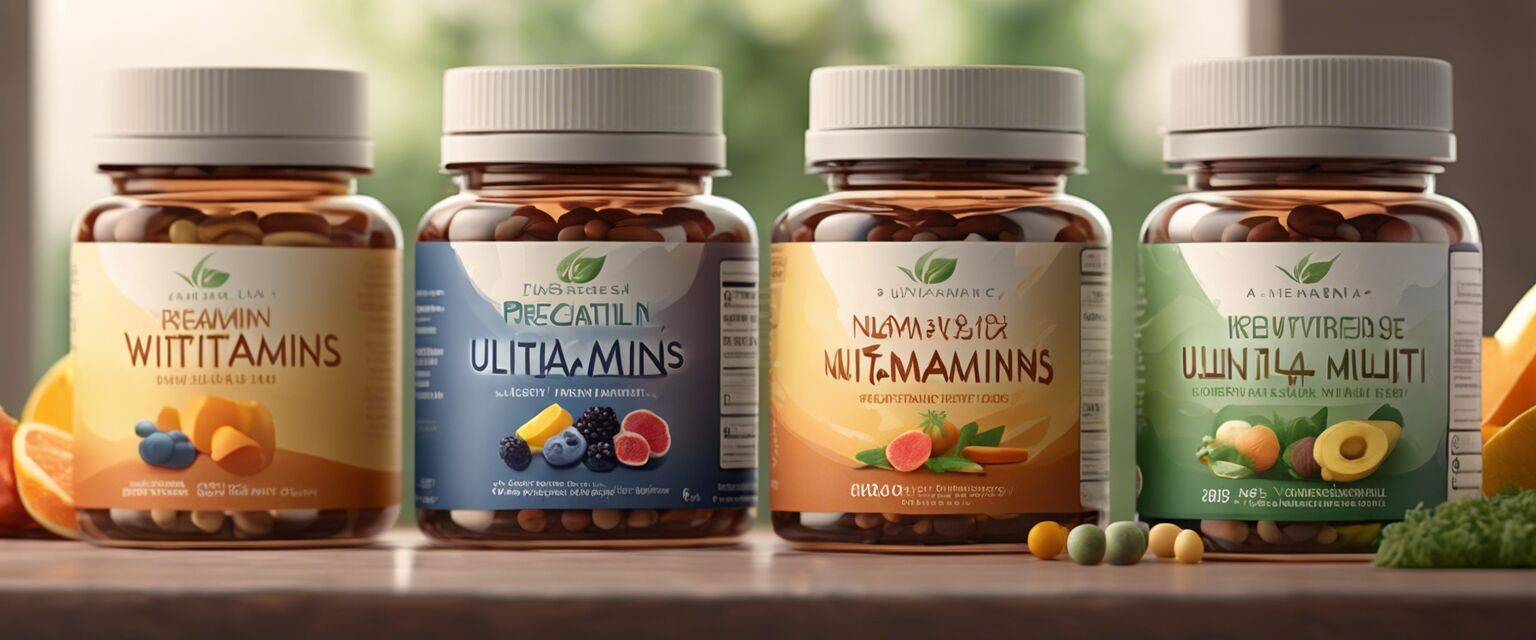
Multivitamins by Trimester
Key Takeaways
- Different trimesters require specific nutrients for fetal development.
- Always consult your healthcare provider before starting any prenatal vitamins.
- Quality matters; look for certified brands to ensure safety and efficacy.
- Stay informed about dietary needs to support both mother and baby.
Choosing the right prenatal multivitamins is crucial for expecting mothers. Each trimester of pregnancy has unique nutritional needs that can significantly impact fetal development and maternal health. This guide will help you navigate the best options available for each stage of pregnancy.
Understanding the Importance of Prenatal Vitamins
Prenatal vitamins are specially formulated supplements that provide essential nutrients necessary during pregnancy. They typically include vitamins and minerals such as folic acid, iron, calcium, and DHA.
Why is prenatal nutrition important?
- Supports fetal growth and development
- Reduces the risk of birth defects
- Helps manage maternal health issues
Multivitamins for Each Trimester
Each trimester presents different challenges and nutritional needs. Below, weâll explore the specific requirements for each stage and recommended vitamins.
First Trimester (Week 1 - Week 12)
The first trimester is crucial for fetal development, especially the formation of the neural tube. Key nutrients include:
- Folic Acid: Essential for brain and spinal cord development.
- Iron: Supports the increased blood volume.
- Calcium: Important for the development of the baby's bones.
| Nutrient | Recommended Daily Intake |
|---|---|
| Folic Acid | 400-800 mcg |
| Iron | 27 mg |
| Calcium | 1000 mg |
Second Trimester (Week 13 - Week 26)
The second trimester marks significant growth for the baby. Focus on these nutrients:
- Vitamin D: Supports calcium absorption.
- DHA: Important for fetal brain development.
- Protein: Essential for tissue development.
| Nutrient | Recommended Daily Intake |
|---|---|
| Vitamin D | 600 IU |
| DHA | 200-300 mg |
| Protein | 75-100 g |
Third Trimester (Week 27 - Birth)
In the third trimester, the baby's weight increases rapidly. Important nutrients include:
- Iron: Continues to be vital for maternal blood supply.
- Calcium: Supports the baby's skeletal growth.
- Magnesium: Helps with muscle function and development.
| Nutrient | Recommended Daily Intake |
|---|---|
| Iron | 27 mg |
| Calcium | 1000 mg |
| Magnesium | 350-400 mg |
Popular Types of Prenatal Multivitamins
When selecting prenatal multivitamins, consider the following types:
- Certified gluten-free vitamins
- Chewable prenatal vitamins
- DHA prenatal supplements
- Essential prenatal multivitamins
- Organic prenatal vitamins
- Subscription-based vitamin services
- Vegan prenatal multivitamins
Choosing the Right Prenatal Multivitamins
When selecting a prenatal multivitamin, consider the following factors:
- Check for third-party testing for quality assurance.
- Look for a comprehensive formula that covers all essential nutrients.
- Consider any dietary restrictions or allergies you may have.
FAQs
How do I know if I need prenatal vitamins?
Consult your healthcare provider to determine if you need prenatal vitamins based on your diet and health status.
Can I get all necessary nutrients from food?
While it's best to obtain nutrients from a balanced diet, prenatal vitamins can help supplement any gaps.
Are there any side effects associated with prenatal vitamins?
Some women may experience nausea or constipation. It's important to discuss any concerns with your healthcare provider.
Pros
- Supports fetal development and maternal health
- Reduces the risk of deficiencies during pregnancy
- Convenient way to ensure adequate nutrient intake
Cons
- Some may experience gastrointestinal discomfort
- Not a substitute for a healthy diet
- Can be expensive depending on the brand
Tips for Beginners
- Start taking prenatal vitamins before conception if possible.
- Stay consistent with your daily intake.
- Pair vitamins with a healthy diet rich in fruits, vegetables, and whole grains.
Conclusion
Choosing the right prenatal multivitamins is essential for a healthy pregnancy. Remember to consult with your healthcare provider to find the best options tailored for your needs throughout each trimester. By being informed and proactive about your prenatal nutrition, youâre setting a solid foundation for both you and your baby.







